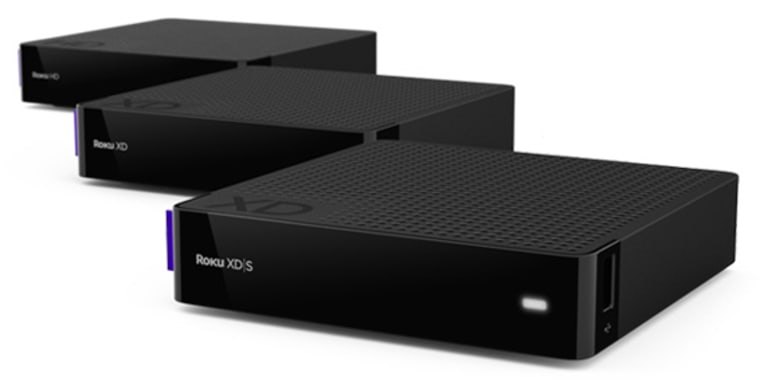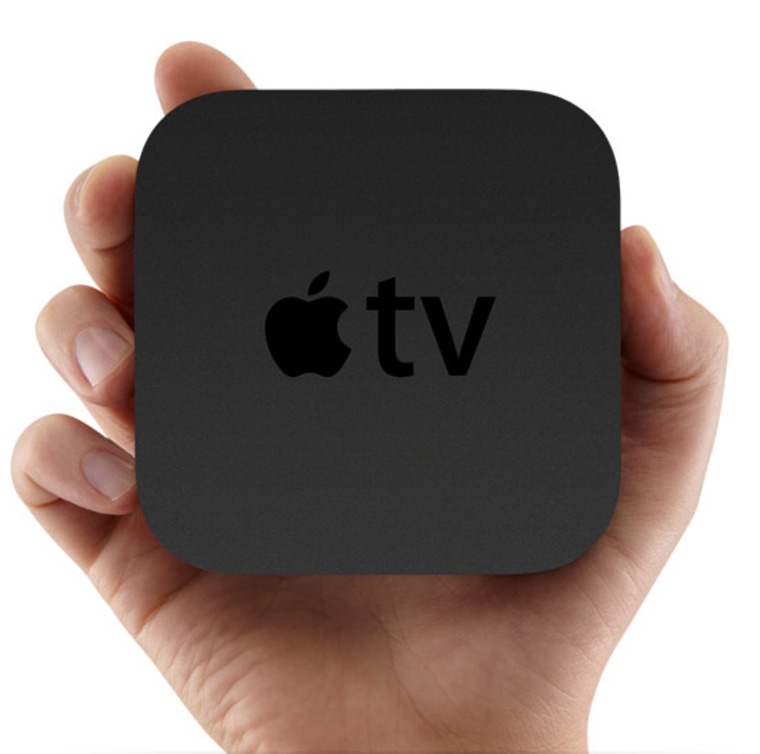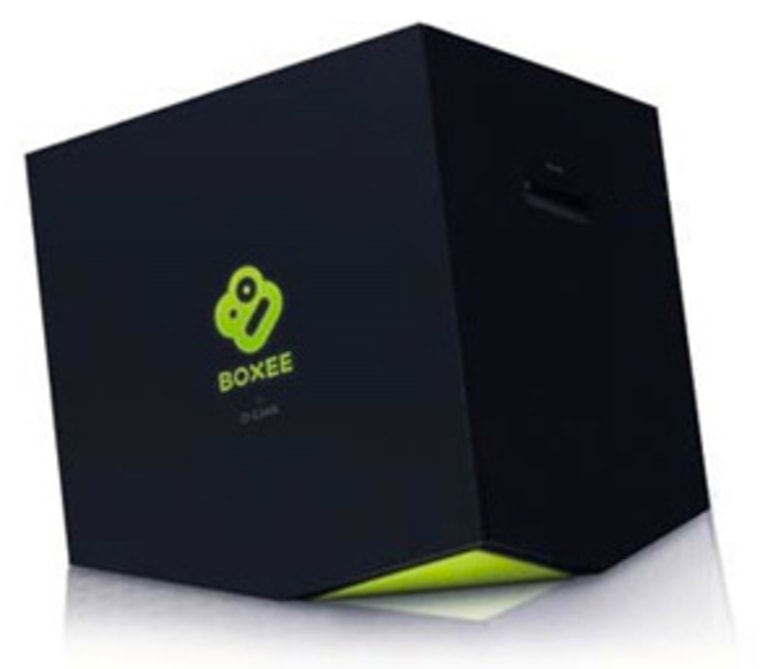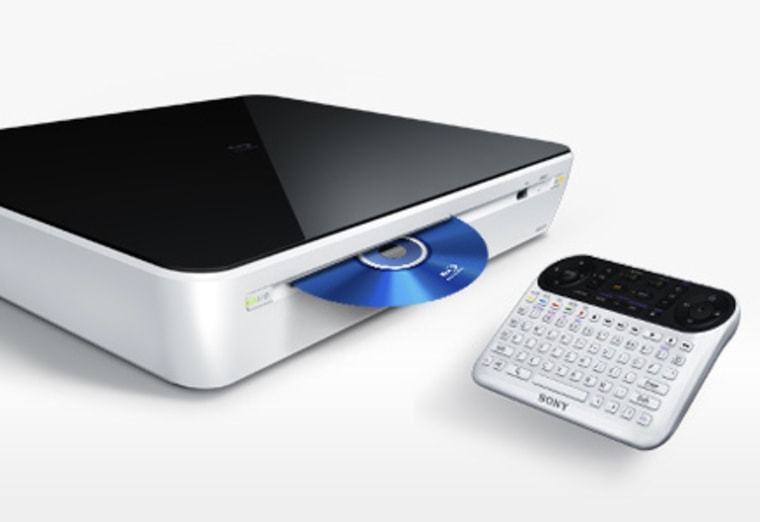If you don't yet know about HD media players, you should. These little boxes stream movies and TV shows from the Internet, often from subscription services you already have. They connect via Wi-Fi, and can do all kinds of tricks. Best of all, the best ones are getting downright cheap.
I'm talking about Apple TV, Roku HD and a slew of others. Nearly all of these have streaming Netflix, YouTube and some service for pay-per-view newly released movies on demand, and many have other tricks up their HDMI ports. If you're not interested in buying a connected TV, but want some of that nice clean Internet video action, you should pick one up.
That is, provided you don't already have an Xbox 360 or PlayStation 3, or are shopping for one of the newest Blu-ray players. Most of those also come with Netflix and other video-on-demand options, so buying a standalone media player may turn out to be redundant.
When it comes to the services, a few stand out. Netflix is great for a vast assortment of older movies, some new releases and quite a few TV series. It comes "free" with every DVD-based rental plan (starting at $9.99). But now you can buy a streaming-only plan, for $7.99, for just devices like these. Hulu has some movies but a lot more TV series, created as it was by a partnership of NBC, Fox and ABC. (Msnbc.com is an NBC Universal-Microsoft joint venture.) Its $7.99 Hulu Plus service was recently introduced, and appears alongside Netflix on the best gadgets. There's some overlap, but video junkies may find value in subscribing to both.
Pay-per-view movie services tend to get lumped together, since most movies are available on all sites at the same time, from Apple TV's iTunes to Amazon Video on Demand, and prices tend to range from $3.99 to $5.99 per feature-film rental, the higher end being for high-def content. But among the movie services, Vudu stands out because of its excellent video quality.
I took a look at all of the major connected devices, and have assessed what you should consider, what you might consider, and what you should darn well stay away from.
Ready for action

Roku boxes - This platform is great and only getting greater, all the while staying seriously cheap. The entry point is $59.99, and even there, you get a Wi-Fi connected box that streams 720p video (when the provider is offering it) from Netflix, Hulu Plus, MLB, Amazon VOD, Pandora and many more services. Step up to the $79.99 XD model, and you get 1080p video (again, where available), and an instant-replay remote. The top-of-line $99.99 XDS includes enhanced dual-band Wi-Fi, and a USB port which will soon natively support drives with photos, music and movies you have already.
Even though Roku is a cheap and simple platform, good for all levels of tech knowledge, it's also geek-friendly: Besides courting many major app makers, Roku lets tinkerers build homespun "private" apps which are available around the Web.

Blu-ray players - The Blu-ray revolution may not be as significant as the switch from VHS to DVD, but it does bring the concept of a "connected" player home. Samsung has five Blu-ray players that support the company's apps platform, including the BD-C6500 that's listed on Amazon for $169. The apps include a variety of movies-on-demand services (including my favorite, Vudu), as well as all kinds of fun stuff, bowling games, yoga tutorials, and yes, even Facebook.
LG's BD550 is also noteworthy, as it costs just $93 on Amazon, and comes with Netflix, Vudu and Pandora, among other services, though to get Wi-Fi connectivity you would need the BD570, which I just spotted for $135 from one of Amazon's partners. Hulu says that Hulu Plus support will be added to LG's Blu-ray players soon.
Game consoles - Sony's PlayStation 3 is still arguably the best Blu-ray player, and it just got better when Hulu Plus was added to its software package, which already includes Netflix, plus movie purchases and rentals from the PlayStation Store.
The Xbox 360 is another good choice. It may not have the Blu-ray, but it's got Netflix and quite an awesome array of HD video on demand through the Zune video store. To make it even better, Hulu Plus is coming soon.
The Wii is the only console that doesn't really rock the video on demand. It's not high-def, so it should automatically be disqualified from this roundup, and I'm still steamed that you can't use its DVD drive to play DV-freakin'-Ds. (Not without hackery, at least.) But since it does now have a downloadable Netflix app, I have to mention it. There, done.
Might be right

Apple TV - I have to say, Apple was incredibly wise to turn its Apple TV into a small $99 device that feels more like an accessory and less like a platform by itself. People are buying it, and they're not dumb for doing so. If you have an iPhone or an iPad, you can now easily stream your videos or music from your device to a TV or sound system connected to Apple TV. That alone is worth $99 to some people.
My beef with Apple TV is that it focuses too much on pay-for-play video downloads and not as much on the video that's already distributed by subscription, or even for free. Adding Netflix seals the deal for many, though who knows when Apple will acknowledge Apple TV's true destiny as a big-screen cousin of iPad and iPhone, and bring in the full complement of third-party apps?
Still half-baked

Boxee Box by D-Link - Boxee software is a favorite among geeks, and not without reason: It was the first major platform to harness Web video for enjoyment on a TV. Trouble is, when it was just a hacker's friend, the interface's inherent pain points — loading a video often means pulling up a Web page, waiting for it to load and then actually moving the cursor to click "Play," for instance — were no big deal.
But when Boxee moved to go mainstream, with the $199.99 D-Link Boxee Box, all the stress remained, even as the available Web video slipped away. Fair or not, movie and TV content owners are suddenly very loath to allow their Web-distributed content to be played on devices that connect to TVs. Until Netflix and Hulu Plus arrive — and Boxee says soon but there's no hard date — the system is not only clunky, but even less feature-rich than other, cheaper options.

Google TV from Logitech and Sony - Google TV has been the punching bag of the fall gadget season, and not without reason. Google launched its platform assuming that all of the Web's videos would be playable on the device, and very quickly, most top networks with full episodes online shut off streams going to Google's devices. But it wasn't just an external assault that did it in. The product confused websites with apps, making the user interface ambiguous and confusion. Even though prices are being cut on both the Logitech Revue and the Sony Internet TV and Blu-ray player, it's just not worth it.
Related stories: